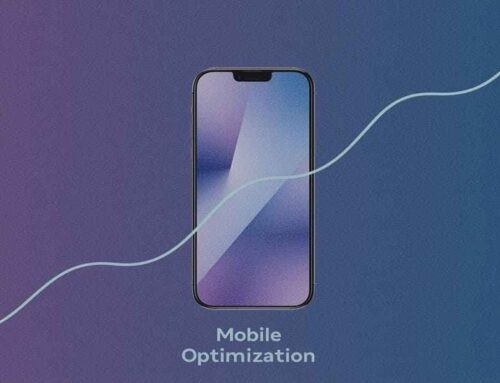
The Power of No
Let’s face it, saying “No” is hard. Whether it’s to a client, a colleague or even yourself, turning down opportunities or requests can feel like you’re shutting doors, missing out or even being rude.
But what if I told you that the power of no could be the secret weapon your business has been missing? What if saying no to the wrong things could actually help you say yes to the right ones, the ones that truly matter for your growth?
In a world that glorifies busyness and constant hustle, learning to say no is a skill that can transform your business. It’s not about being negative or dismissive; it’s about being intentional.
It’s about prioritizing what aligns with your vision, your goals and your values. And when you do that, you’ll find that saying no can skyrocket your business growth in ways you never imagined.
So, what exactly should you be saying no to? Let’s dive into the five things you need to start rejecting today to unlock your business’s full potential.
-
Saying No to Unaligned Opportunities
Opportunities are everywhere. A new client project, a partnership proposal, a speaking engagement, they all sound exciting, don’t they? But here’s the thing: not every opportunity is the right opportunity.
Think about it. Have you ever taken on a project that didn’t align with your business goals, only to regret it later? Maybe it drained your resources, distracted your team or left you feeling unfulfilled. The truth is, saying yes to everything can dilute your focus and take you further away from your core mission.
Warren Buffett once said, “The difference between successful people and really successful people is that really successful people say no to almost everything.” This isn’t about being picky; it’s about being strategic. When you say no to opportunities that don’t align with your vision, you create space for the ones that do.
Ask yourself: Does this opportunity move me closer to my goals? Does it align with my values? If the answer is no, it’s time to say no.
-
Saying No to Toxic Clients
We’ve all had them, the clients who demand the impossible, refuse to respect boundaries or simply drain your energy. While it might feel tempting to hold onto them for the sake of revenue, the cost of keeping toxic clients far outweighs the benefits.
Toxic clients can take a toll on your team’s morale, eat up your time and even damage your reputation. They distract you from serving your ideal clients, the ones who appreciate your work, pay on time and align with your values.
Saying no to toxic clients isn’t just about protecting your business; it’s about creating a healthier, more productive environment for your team. It’s about making room for clients who inspire you, challenge you in the right ways and help you grow.
Remember, not all money is good money. Sometimes, the best thing you can do for your business is to let go of the clients who don’t deserve your time and energy.
-
Saying No to Perfectionism
Perfectionism is a double-edged sword. On one hand, it drives you to deliver high-quality work. On the other, it can paralyze you, slow you down and prevent you from taking action.
How many times have you delayed launching a product, sending an email or starting a new initiative because it wasn’t “Perfect”? The truth is, perfection is an illusion. Waiting for the perfect moment or the perfect outcome can cost you valuable time and opportunities.
As Reid Hoffman, the co-founder of LinkedIn, famously said, “If you’re not embarrassed by the first version of your product, you’ve launched too late.” The key is to embrace imperfection and focus on progress, not perfection.
Saying no to perfectionism means giving yourself permission to take risks, make mistakes and learn along the way. It means prioritizing action over overthinking and trusting that you can improve as you go.
-
Saying No to Micromanagement
As a business owner or leader, it’s natural to want to be involved in every aspect of your business. After all, it’s your baby. But micromanaging your team can do more harm than good.
When you try to control every detail, you not only overwhelm yourself but also stifle your team’s creativity and growth. You send the message that you don’t trust them to do their jobs, which can lead to disengagement and low morale.
Saying no to micromanagement means empowering your team to take ownership of their work. It means trusting them to make decisions, solve problems and contribute their unique skills and perspectives.
Remember, your role as a leader is to guide, support and inspire, not to do everything yourself. When you let go of the need to control, you free up your time to focus on the bigger picture and drive your business forward.
-
Saying No to Burnout
In the pursuit of success, it’s easy to fall into the trap of overworking. You tell yourself that if you just work harder, longer and faster, you’ll achieve your goals. But the reality is, burnout is a silent killer of productivity, creativity and growth.
Saying no to burnout means prioritizing your well-being and setting boundaries. It means recognizing that rest is not a luxury but a necessity. When you take care of yourself, you show up as the best version of yourself, for your business, your team and your clients.
Arianna Huffington, the founder of The Huffington Post, once said, “We think, mistakenly, that success is the result of the amount of time we put in at work, instead of the quality of time we put in.”
So, take that break. Delegate that task. Say no to the late-night emails and the endless to-do lists. Your business will thank you for it.
The Ripple Effect of Saying No
When you start saying no to the things that don’t serve you, something incredible happens. You create space for the things that do. You gain clarity, focus and momentum. You attract the right opportunities, clients and partnerships.
But perhaps most importantly, you set a powerful example for your team and your industry. You show that success isn’t about doing everything, it’s about doing the right things.
The power of no isn’t just about rejection; it’s about redirection. It’s about steering your business in the direction of growth, impact and fulfillment.
Conclusion: Embrace the Power of No
In a world that constantly demands more from us, saying no can feel counterintuitive. But as we’ve seen, the power of no is a game-changer for business growth. By saying no to unaligned opportunities, toxic clients, perfectionism, micromanagement and burnout, you create the space and energy to focus on what truly matters.
So, the next time you’re faced with a decision, ask yourself: Does this align with my vision? Does it serve my goals? If the answer is no, don’t be afraid to say it.
Remember, every time you say no to the wrong things, you’re saying yes to the right ones. And that’s how you skyrocket your business growth.
Now, it’s your turn. What will you say no to today?
By embracing the power of no, you’re not just protecting your time and energy, you’re paving the way for a brighter, more successful future for your business. So go ahead, start saying no. Your growth depends on it.
FAQs: The Power of No
Below are some frequently asked questions about the power of saying no and how it can transform your business. If you’re still wondering how to apply this concept or why it’s so important, these answers will help clarify.
- Why is saying no so important for business growth?
Saying no is crucial because it allows you to focus on what truly matters. By turning down opportunities, clients or tasks that don’t align with your goals, you free up time, energy and resources to invest in the things that drive growth. It’s about being intentional and strategic with your decisions, rather than spreading yourself too thin.
- Won’t saying no hurt my business relationships?
Not if you do it respectfully and professionally. Saying no doesn’t have to mean burning bridges. You can decline opportunities or requests in a way that leaves the door open for future collaboration. For example, you can say, “This isn’t the right fit for us right now, but I’d love to stay in touch for future opportunities.” Honesty and transparency often strengthen relationships rather than harm them.
- How do I know when to say no?
Ask yourself these questions.
- Does this align with my business goals and values?
- Will this help me grow or will it distract me from what’s important?
- Do I have the time, energy and resources to take this on without compromising my well-being or other priorities?
If the answer to any of these is no, it’s a sign you should consider declining.
- What if I’m afraid of missing out on opportunities?
Fear of missing out (FOMO) is natural, but it’s important to remember that not every opportunity is the right one. Saying no to the wrong opportunities creates space for the right ones to come along. Trust that by staying true to your vision, you’ll attract the opportunities that are meant for you.
- How can I say no without feeling guilty?
Guilt often stems from a desire to please others or a fear of disappointing them. Remind yourself that saying no is not selfish, it’s necessary for your growth and well-being. Practice framing your no in a positive way, such as, “I’m focusing on other priorities right now” or “This isn’t the best fit for me at the moment.” Over time, saying no will feel more natural and less guilt-inducing.
- What are some examples of things I should say no to?
Below are a few common examples.
- Projects or clients that don’t align with your values or expertise.
- Meetings that don’t have a clear agenda or purpose.
- Requests that overstep your boundaries or demand too much of your time.
- Opportunities that feel exciting but don’t contribute to your long-term goals.
- How can I help my team embrace the power of no?
Lead by example. Show your team that it’s okay to say no to tasks or projects that don’t align with their roles or the company’s goals. Encourage open communication and empower them to set boundaries. Provide guidance on how to prioritize and make decisions that support the team’s overall objectives.
- What if I’ve already said yes to too many things?
It’s never too late to reassess and make changes. Start by evaluating your current commitments and identifying which ones no longer serve you. If possible, delegate, renegotiate deadlines or politely bow out of commitments that are draining your resources. Moving forward, practice saying no to new requests until you’ve regained balance.
- Can saying no really help prevent burnout?
Absolutely. Burnout often results from overcommitting and failing to set boundaries. By saying no to tasks, projects or habits that drain your energy, you protect your well-being and create space for rest and rejuvenation. A well-rested, focused leader is far more effective than one who’s constantly running on empty.
- How do I balance saying no with staying open to new opportunities?
The key is to stay clear on your priorities. Create a list of your non-negotiables, the things that align with your goals and values and use it as a filter for decision-making. When a new opportunity arises, evaluate it against your list. If it doesn’t fit, it’s okay to say no. If it does, you can confidently say yes.
- What if my team or clients push back when I say no?
Stand firm in your decision, but be empathetic and transparent. Explain your reasoning in a way that highlights the benefits for everyone involved. For example, “By focusing on our core projects, we’ll be able to deliver better results for you.” Most people will respect your honesty and professionalism.
- How can I practice saying no more effectively?
Start small. Practice saying no to low-stakes requests or opportunities to build your confidence. Use clear, concise language and avoid over-explaining or apologizing excessively. Remember, you don’t owe anyone a lengthy justification for your decisions.
- What’s the biggest benefit of saying no?
The biggest benefit is clarity. When you stop saying yes to everything, you gain a clearer sense of what truly matters to you and your business. This clarity allows you to focus on your goals, make better decisions and ultimately achieve greater success.
- Can saying no really skyrocket my business growth?
Yes! By saying no to distractions, misaligned opportunities and unhealthy habits, you create the space and focus needed to grow. You’ll be able to invest your time and energy into the strategies, clients and projects that drive real results. Over time, this intentional approach can lead to exponential growth.
- What’s the first step to embracing the power of no?
Start by identifying one thing you need to say no to right now. It could be a project, a client, a habit or even a mindset (like perfectionism). Once you’ve identified it, take action. Say no and observe how it feels. Over time, you’ll build the confidence and clarity to make saying no a regular part of your business strategy.
By embracing the power of no, you’re not just protecting your time and energy, you’re setting the stage for sustainable, meaningful growth. So, what will you say no to today? Write in the comments below.
Further Reading – The Power of No














